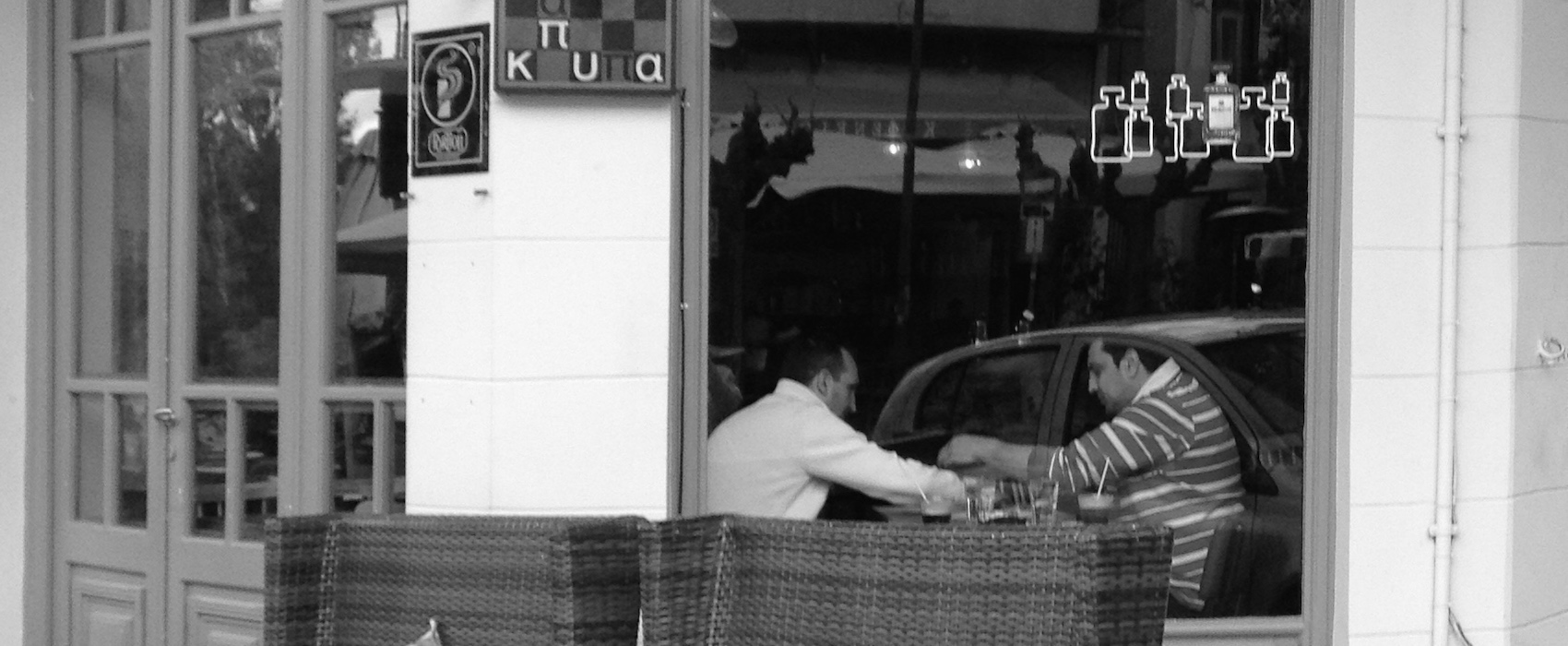I got so cold walking around today that I can hardly write – I’m hoping that the heaters in this cafe on Evangelistrias will warm me through and loosen my limbs. Watching the women sitting at a table in the cafe Centrale opposite as they chat and smoke, it struck me that I was reading this scene very differently to others I had seen because they were women.
Over the past two days I’ve noticed men, sitting alone, looking sad and dejected, or men in groups, talking, laughing, playing chess or cards, but all clearly not in work. Seeing women like these sitting in cafes during the day didn’t have the same impact. Perhaps the sight of older men out of work has always been a potent symbol of economic decline, and it’s certainly also been reinforced in the UK by dramas such as Boys from the Blackstuff and The Full Monty. But however emotive the a symbol the unemployed older men might be, it’s not this group that is suffering the most as a result of Greece’s economic crisis. In fact it’s the one hit the least, although that said, the figures are still terrible.
Last year, unemployment among women was at 29.3 per cent and 23.4 percent among men, with just under 22 per cent of men over 25 out of work, compared to just over 27 per cent of women. Among the under 25s, an astonishing 57 per cent of women were unemployed, compared to just over 46 per cent of young men.
If the Greek crisis is impacting young people and young women in particular, but we only ‘see’ male unemployment, then it’s most likely that we will try and find a solution to that problem and give it more weight.
In Caliban and the Witch, Silvia Federici gives a very detailed account of the way that women’s work and attitudes towards it have been shaped by the needs of capitalism. Under feudalism, women were by no means considered equal to men, but married women were made joint tenants with their husbands. Enclosures and the movement away from subsistence farming to paid work all had a significant impact on women’s lives, including the development of the role of a housewife with responsibility for children, as well as what was considered women’s work. As industrialisation progressed, men also frequently conspired to ensure that women were kept out of the highest paid trades and work. The idea that a woman’s work is subsidiary to that of the male breadwinner is deeply rooted in the history of capitalism.
I’m not suggesting there was a golden age of feudalism that we could hark back to, only that it’s often a very partial history that we are presented with. I’m realising that how we perceive the past matters, that it’s not helpful to idealise or ignore some aspects of it that don’t quite fit the ideal, or are somehow less comfortable. This truthfulness about the past important because it impacts not only the present, but the future we shape.
We probably can’t get to a point where we consider unemployment among men and women equally without a realistic appraisal of the past that includes an examination of the prejudices, blind spots and imbalances of power that have shaped our present. This would undoubtedly lead to a very different future compared to the one we’d be heading towards if we only looked to an idealised past of full employment for men.

Leave a Reply
You must be logged in to post a comment.